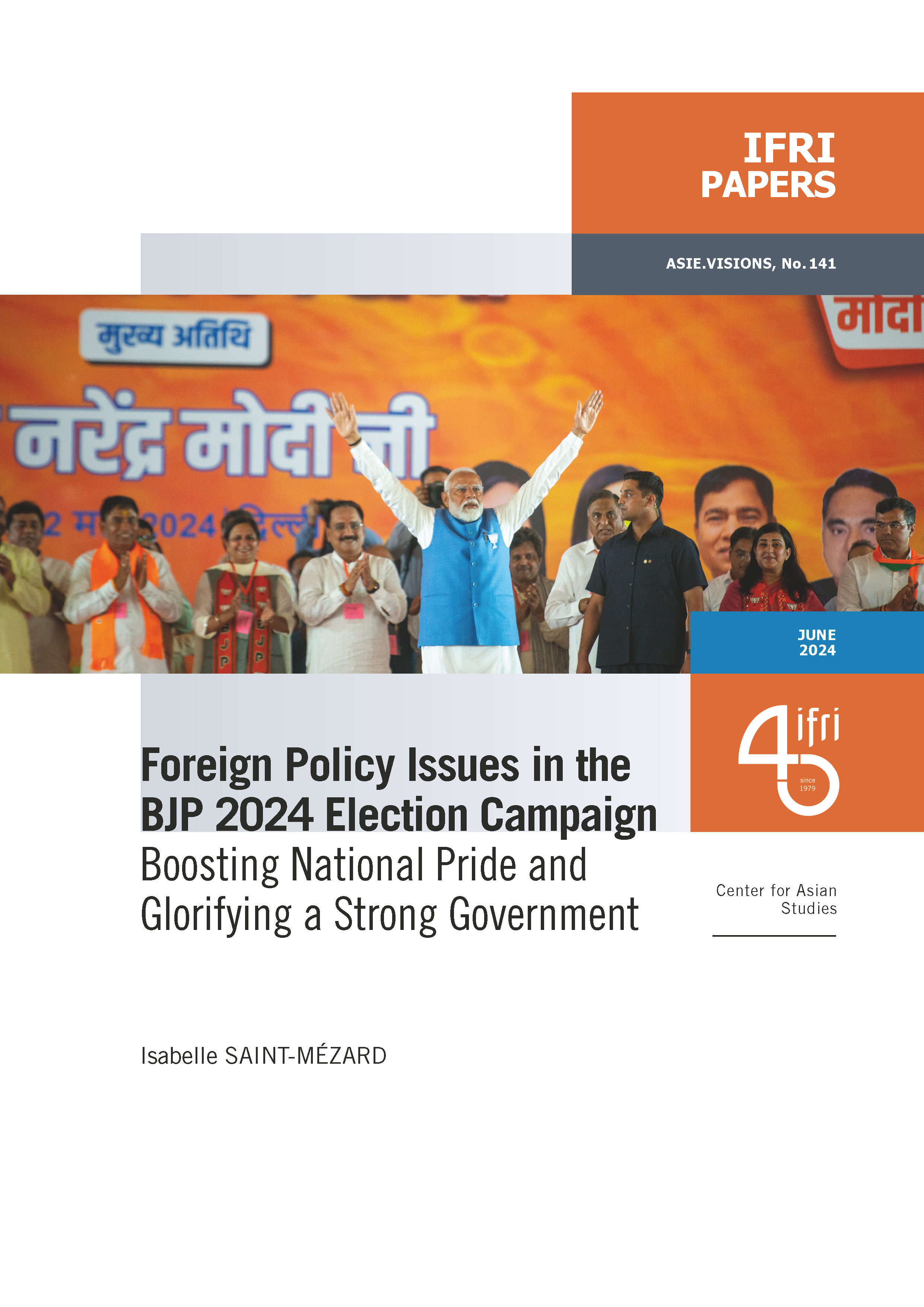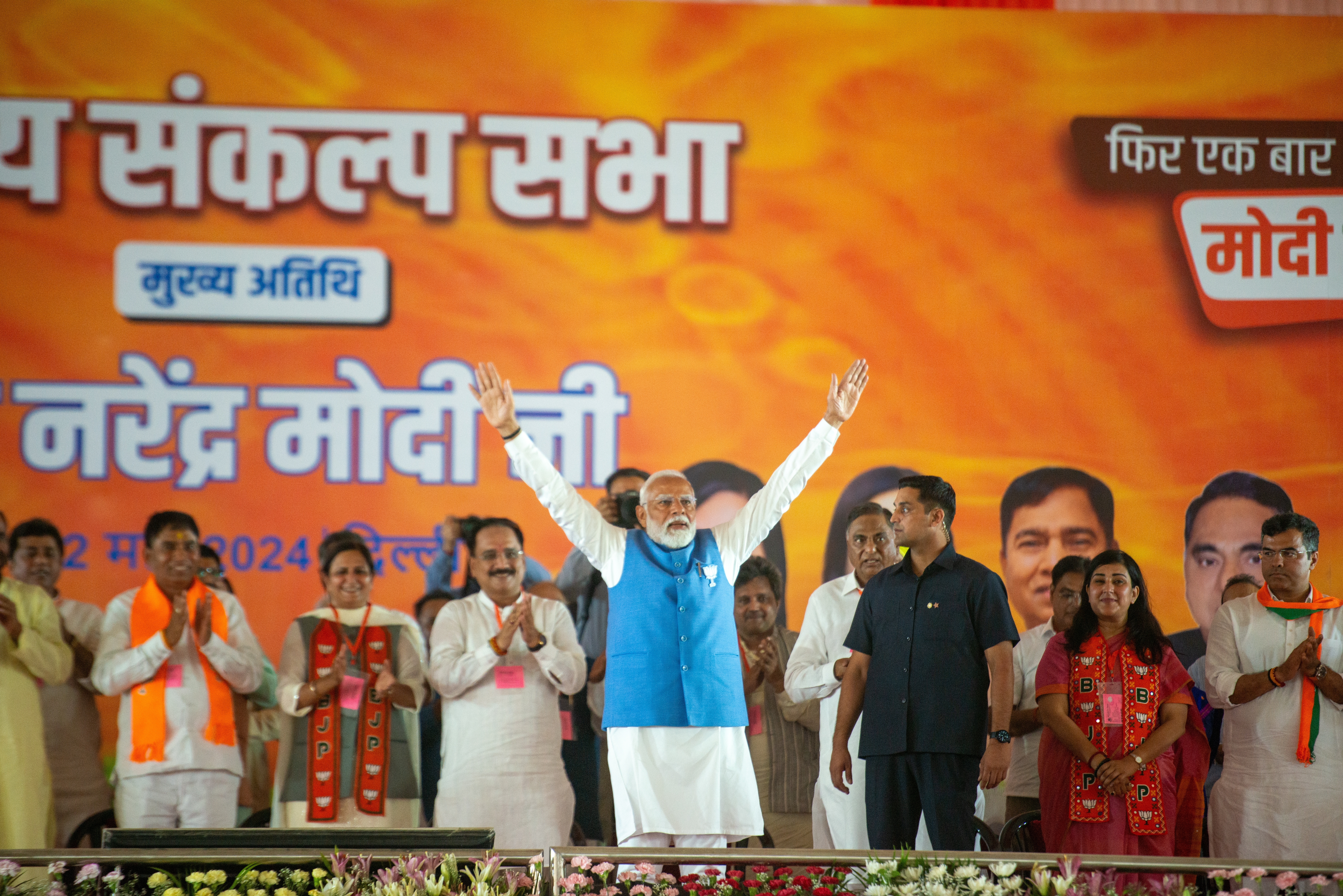Foreign Policy Issues in the BJP 2024 Election Campaign: Boosting National Pride and Glorifying a Strong Government

While election campaigns in India traditionally focus on domestic issues above all, the Bharatiya Janata Party’s (BJP) campaign for the 2024 general elections placed a strong emphasis on foreign policy. It emphasized how, under the leadership of Prime Minister Narendra Modi, India has strengthened its diplomatic role and achieved international economic success.

Throughout the campaign, hoping to galvanize national pride, the BJP hammered home the point that, thanks to Modi, India had become the world’s fifth-largest economy, developed its industry and made significant progress in certain export sectors.
The BJP campaign also emphasized India’s new diplomatic and strategic assertiveness, presenting Modi as an exceptional leader, capable both of protecting the country from external threats and of making his voice heard on the international stage like no other before him. Indeed, the BJP highlighted much of Modi’s international commitments, including his participation in forums such as the Quadrilateral Security Dialogue (QUAD), BRICS, G20 and Shanghai Cooperation Organization (SCO), portraying him as a grand, global statesman and the sole embodiment of India’s rising status.
Additionally, the BJP took up the concept of “Vishwa Bandhu” (friend of the world) to present India as a peacemaker, a provider of humanitarian aid and a designer of solutions for the world, thanks to its unique cultural heritage. In short, the BJP sought to consolidate the image of Modi as the only leader capable of ensuring India’s continued rise on the world stage, appealing in the process to voters’ sense of national pride and their aspirations for international recognition for their country.

Available in:
Regions and themes
ISBN / ISSN
Share
Download the full analysis
This page contains only a summary of our work. If you would like to have access to all the information from our research on the subject, you can download the full version in PDF format.
Foreign Policy Issues in the BJP 2024 Election Campaign: Boosting National Pride and Glorifying a Strong Government
Related centers and programs
Discover our other research centers and programsFind out more
Discover all our analyses
China’s Strategy Toward Pacific Island countries: Countering Taiwan and Western Influence
Over the past decade, China has deployed a diplomatic strategy toward the Pacific Island Countries (PICs). This strategy pursues two main objectives: countering Taiwan's diplomatic influence in the region and countering the influence of liberal democracies in what Beijing refers to as the "Global South."

Opening up the G7 to South Korea to Address Contemporary Global Challenges
The G7’s global influence has diminished as powers like China reshape international governance through initiatives such as BRICS and the Shanghai Cooperation Organisation (SCO). With the G7 now representing just 10 per cent of the world’s population and 28 per cent of global GDP, its relevance is increasingly questioned.
Expanding SPDMM as a pivotal institution in the Pacific – A French perspective
The South Pacific Defence Ministers’ Meeting (SPDMM) is the only forum that brings together defense ministers from the wider South Pacific — including Chile, which is hosting it for the first time. This heterogeneous group of countries with varying resources, capacities, and interests — Australia, Chile, Fiji, France, New Zealand, Papua New Guinea (PNG), and Tonga — are united by their shared determination to strengthen cooperation on maritime security and humanitarian assistance and disaster relief (HADR) activities.
EU’s Derisking From China: A Daunting Task
With economic security as a major concern, the EU has recently turned to “derisking” from China. The EU strategy entails reducing critical dependencies and vulnerabilities, including in EU supply chains, and diversifying where necessary, while recognizing the importance and need to maintain open channels of communication.











